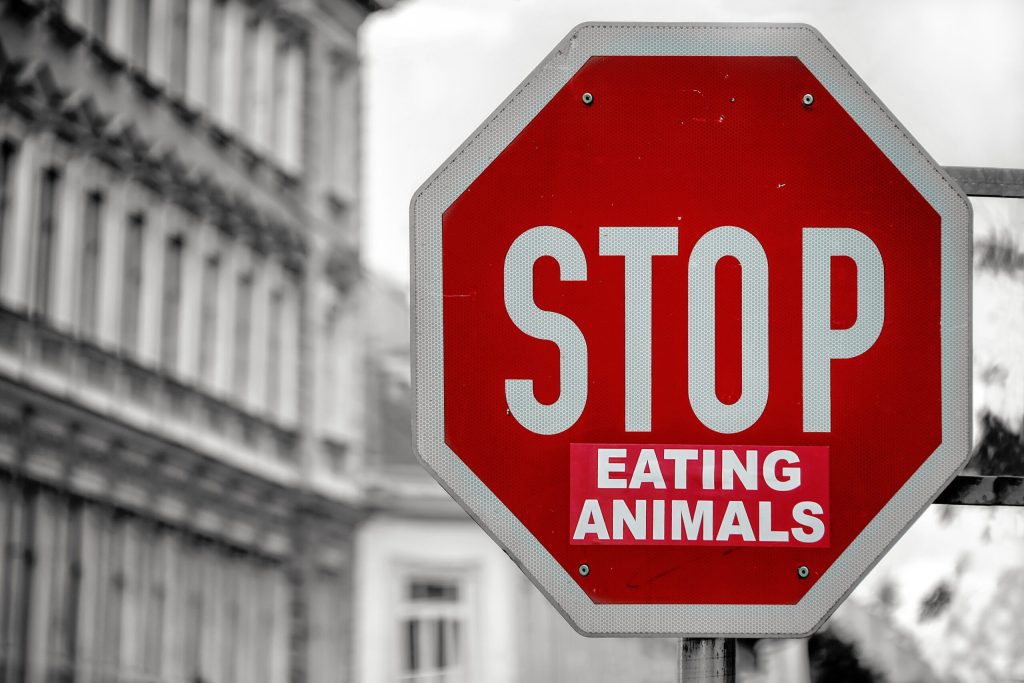The start of a new year is a great time to start something new.
You’ve mentioned to your family and friends that you’ve been seriously thinking about switching to veganism, and the time has come to deliver on that promise. Then you encounter one of the first challenges of being vegan: Some of the people closest to you disapprove of your decision.
Some might think you’re making a big mistake, your parents might express concerns about your health, and others might start cracking vegan jokes even before you make the switch.

Yikes. That’s probably not the reaction you were hoping to get.
In an ideal world, these people who know you the best will support your decision and respect your choice 100%, but we live in reality, and it’s normal to expect disapproval from some of them.
So, if the people closest to you might disapprove of your choice, what more those that don’t know you that well? People who you work with, passing acquaintances, and strangers. You are sure to receive a strange look from one or two of them once you mention that you’re vegan.
And with that, you are sure to encounter some challenges along the way.
Let’s discuss that further.
The difficulty with being vegan
Most of us were raised conventionally, with meat and animal products as a staple in our diet.
People have very little knowledge of what a vegan is. Unfortunately, vegans have been given a bad rep because a few vegans tend to take a more violent and confrontational approach. This is okay; it still convinces people to make the change but also turns off others.

Why?
It’s because people don’t want to be told what to do.
If you smoke and a stranger aggressively comes at you, admonishes your smoking habits, and tells you to stop, you’d probably hate that person, right? Even if you know that quitting smoking is good for you.
If you tell a meat-eater you barely know that he should switch to veganism because it would improve his health, he will run as far away from you as possible (especially if he thinks there’s nothing wrong with his health).
So here’s one of the most important things to remember when you switch to veganism: find the perfect balance between being an advocate for animals, the environment, and health instead of being the overzealous type.
Do the first one, and you’d probably swing one person or two to veganism. Do the second, and you’d probably never be invited to a party again.
This brings me to some tips on how to interact with nonvegans.
What social challenges do vegans face?
During parties or gatherings
Speaking of parties.
It pays to be proactive. When a friend or an acquaintance invites you to their house, you can always talk to them personally and tell them that you’re vegan.
If they’re truly your friend or a gracious host, they will accommodate your vegan needs and prepare something that will suit your dietary needs. Some would even go the extra mile and make a vegan main course and dessert.
If they can’t for one reason or another, you can always ask them if it’s okay for you to bring your food. This does two things: It ensures that you have something to eat, and you can take advantage and prepare some delicious vegan food so that other party-goers can try it. And who knows, maybe you end up turning a few people into a plant-based lifestyle.

Of course, what you’re eating or not eating during the party could be a topic of conversation for the whole night. This could turn pretty uncomfortable, especially if you’re facing a huge group that could pick on you if you’re the only vegan.
When people ask you about your choices, remember to stay polite, and do your best to keep the mood light (I know it’s hard for us animal advocates), but remember that forcing veganism into people rarely works, so do your best not to argue. Suppose a group at a party asks you what you’re going to eat if you’re vegan; you can approach it using the three I’s:
Inject humor into the conversation
Some people poke fun at vegans because of how little they understand about veganism. Again, remember to keep things light instead of arguing with others and inject some humor into the conversation.
If they ask what you’re going to eat at the bbq, tell them you’re probably going to have to settle for some carrots and cucumbers, or something like that.
However, if humor is not your strongest suit, you might want to take a different approach.
Inquire of their knowledge of veganism
This is more to make them think and wonder than to test their understanding of the subject.
If some people are worried about where you’re going to get their protein, you can say, “Did you know that there are 20+ plant-based sources of protein that can help you build muscle just as effectively as protein coming from animals?”
Asking them a question and making them think is a less aggressive way than telling them they don’t need animal protein to build muscle, right?
Isolate
You can tell them you can talk to everyone interested one at a time since it’s a broad topic, and it’s a better way to share what you know. That way, you won’t waste your time explaining things to people who aren’t interested and might get rubbed the wrong way.
If someone approaches you later, this person is probably interested in hearing about your choices.
And if all these fail, you can always change the subject and talk about something else that doesn’t involve food.
When eating out
Again, it pays to be proactive.
There are plenty of restaurants that offer vegan alternatives. Try to meet halfway, so everyone’s needs are met. When you find yourself within a group of omnivores deciding to eat out, you can be the first to suggest the restaurants that you know serve vegan food off the top of your head.

It could be challenging if you’re not living in one of the cities with few vegan-friendly restaurants. In that case, you can call the restaurant and ask if they can replace nonvegan ingredients with vegan options.
Often, you will find yourself being served food with nonvegan ingredients even if you have already ordered something vegan. In that case, apologize for any inconvenience or misunderstanding and politely ask the staff for help replacing the food.
You can tell the staff you’re allergic to all animal products, and it will cause a severe reaction that needs medical attention. That way, they’ll be extra careful.
Some people’s knowledge of veganism is limited. Some might think that it’s okay for vegans to eat fish but not meat. But then, some people believe that coconut milk is not vegan and might choose to leave it out.
It could be uncomfortable explaining some things to staff, but it will be worth it.
In relationships
Ideally, you’d like to date someone who’s also vegan. But it’s already hard to find someone you connect with, and it’s going to be a lot harder to find someone who shares the same vegan beliefs as you.
Is it possible for a vegan to date or live with someone nonvegan? Absolutely! Just like how two people with different political beliefs can still get along and live in harmony. If you happen to like someone who is an omnivore, it’s not the end of the world.
But there has to be respect between the two and a healthy compromise.
Living together can bring a whole level of difficulty between an omnivore and a nonvegan, but it can still work. Cook and eat the same foods you like. Some people do it differently, though.
There are instances when the partner doesn’t cook meat when the vegan partner is home. Some have separate vegan and nonvegan cookware. Some eat vegan at home, but the omnivore partner orders meat when they eat out.
(On a side note, when Julian Hierro started dating Eileen, he wasn’t vegan, and she kept preaching about Julian’s love for animals. One year later, he decided to give veganism a shot, and that’s how Jacked Vegans was born).
Try to meet halfway, and you’ll be fine.
Represent the vegan community
People’s opinion on veganism has changed dramatically over the last few years, and there’s plenty of evidence to prove that.
More restaurants are offering vegan alternatives, more vegan products are appearing on the market, and more celebrities are endorsing veganism as a way of life. Athletes are raving about how a plant-based diet has improved their health and athletic performance.
You are not alone.
Vegans face plenty of social challenges along the way but stand firm in their beliefs. Remember that these are opportunities to educate others and show them that there is another way of life aside from what we grew to accept.
Maybe you could even convert one or two people along the way.





